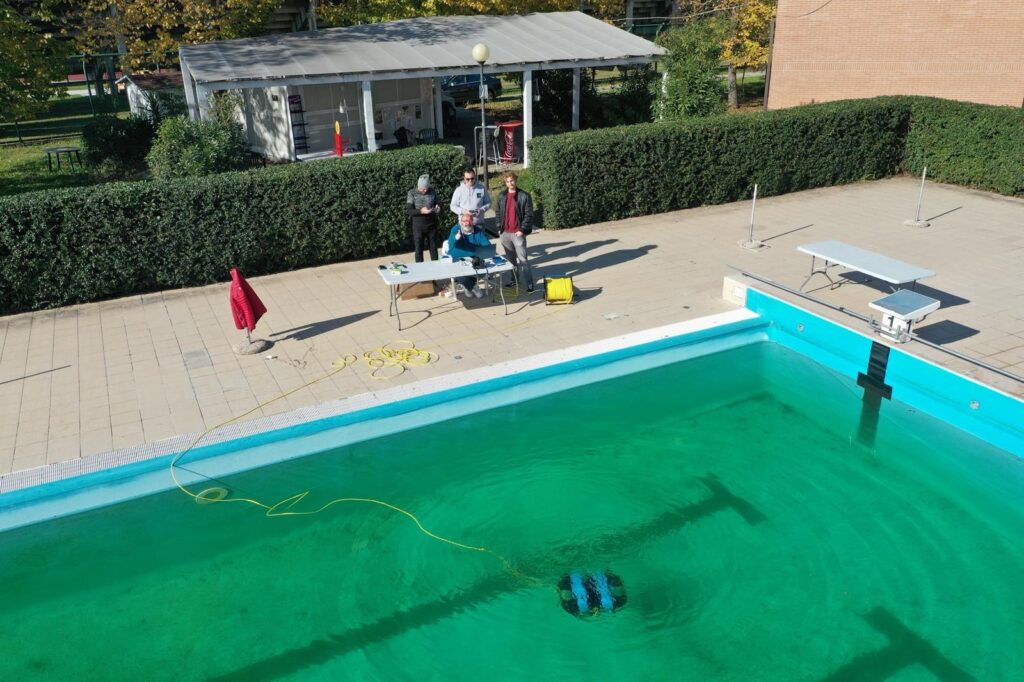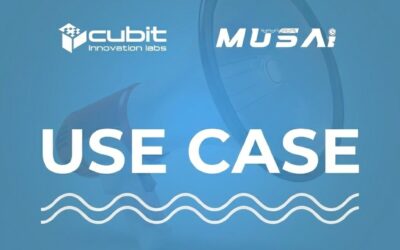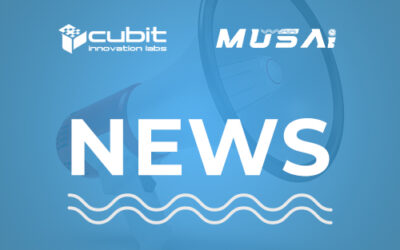The MUSAI project continues to make significant progress, strengthening the team’s work on key development and testing activities aimed at refining the prototype and preparing it for upcoming operational challenges.
Currently, the main activities focus on three fundamental areas:
- Optimization of the design and refinement of the technical solutions identified
- Testing and experimentation in water, carried out at the Municipal Pool of Pontedera
- Integration of electronics into the mechanical structure
- Training of neural networks to enhance the system’s autonomous recognition capabilities
In-Water Testing: A Crucial Milestone in Prototype Development
Pool testing represents a key phase in the product development process. Following the completion of the initial design stages, it becomes essential to recreate realistic operational scenarios in order to validate the training of the neural network and test the overall system.
The Municipal Pool of Pontedera provides an ideal controlled environment, thanks to the valuable support of Progetto Sport, the Municipality of Pontedera, and the Pont-Tech company.
During this experimental phase, the team uses a submersible ROV (Remotely Operated Vehicle) to simulate the final system’s operation in acquiring images and data and performing maneuvers in an operational setting. The ROV supports the prototype by analyzing data collected in real time and transmitting it to a support platform, allowing for immediate intervention in the event of anomalies. While the system is currently integrated on an ROV, it is designed to be adaptable to a variety of fixed or mobile marine platforms, meeting the different needs of the working groups that will employ the developed technology.
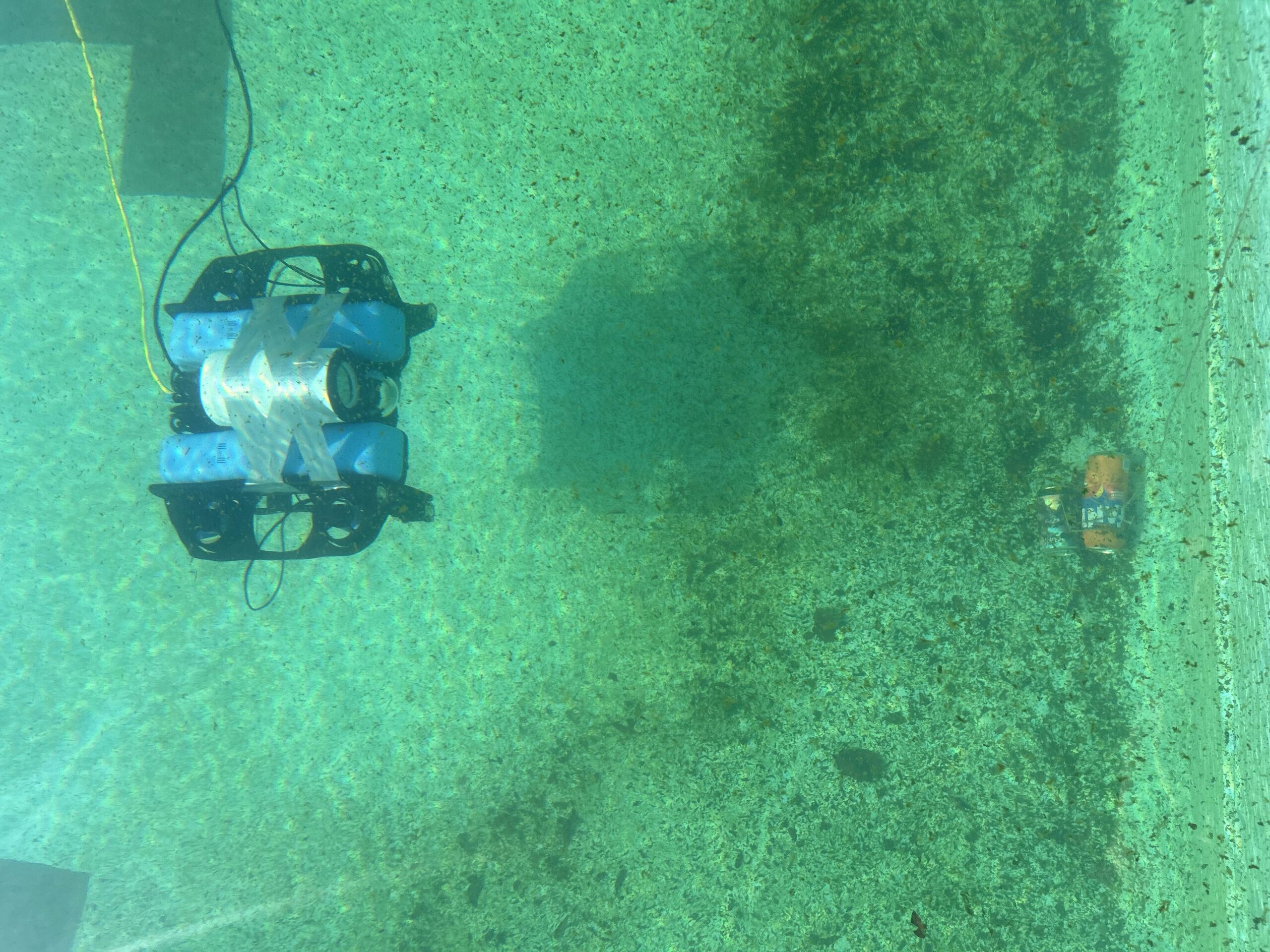
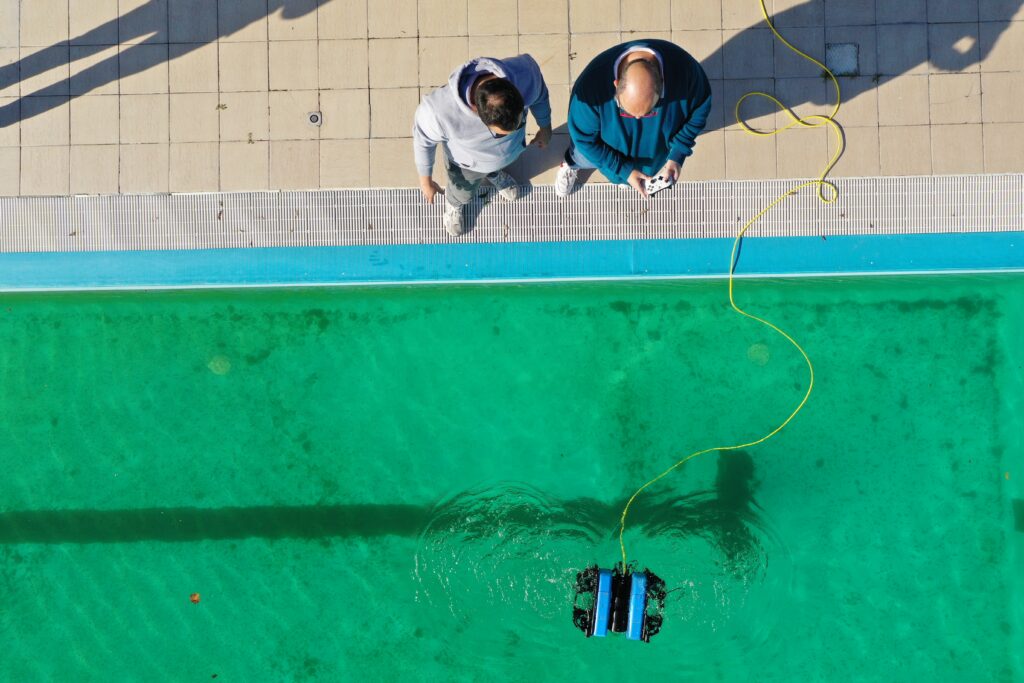
Results achieved and Next Steps
The pool tests have already produced valuable data to enhance the performance of the control software and artificial intelligence. This has enabled optimization of the neural network training in water—a critical step ahead of future open-sea missions—adapting the software to its operational environment.
The upcoming stages include:
- Production of mechanical components, aiming to complete the final prototype by spring 2025
- Feasibility study for marine flora health analysis, one of the project’s key applications
- Integration of the mechanical prototype with the ROV for further pool testing sessions, focusing on validating system modularity, waterproof sealing, and the performance of AI and sensor fusion
- Enhancement and development of data processing, expanding recognition capabilities and optimizing data exchange with receiving platforms
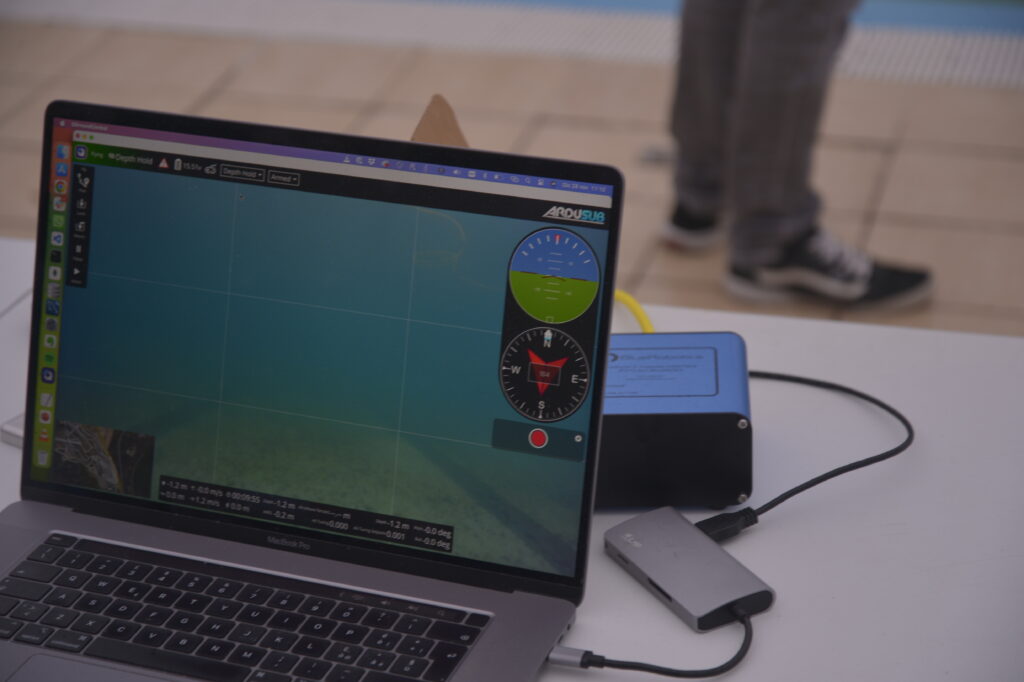
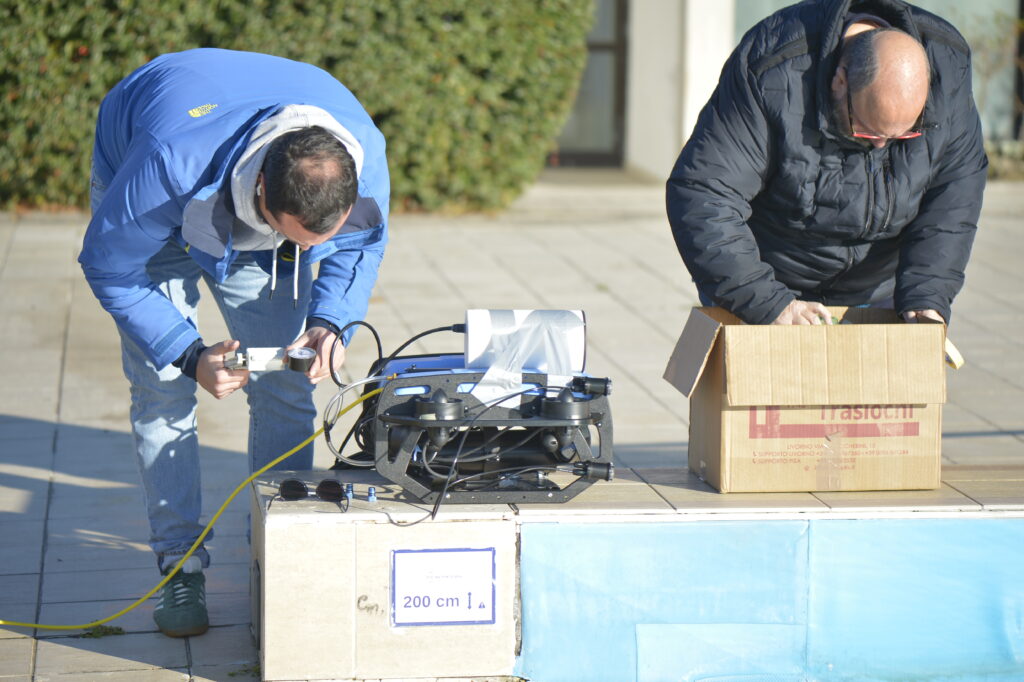
Acknowledgements and Future Outlook
We would like to thank the Municipal Pool of Pontedera, Progetto Sport, the Municipality of Pontedera, and Pont-Tech for their availability and support. Their collaboration enables us to effectively advance the MUSAI project, successfully addressing the technological development challenges of the system.
The MUSAI project is progressing toward its ultimate goal: to deliver a reliable, high-performance prototype capable of making a tangible contribution to the protection of marine ecosystems.
Follow us on LinkedIn for updates and news on the project’s progress!
